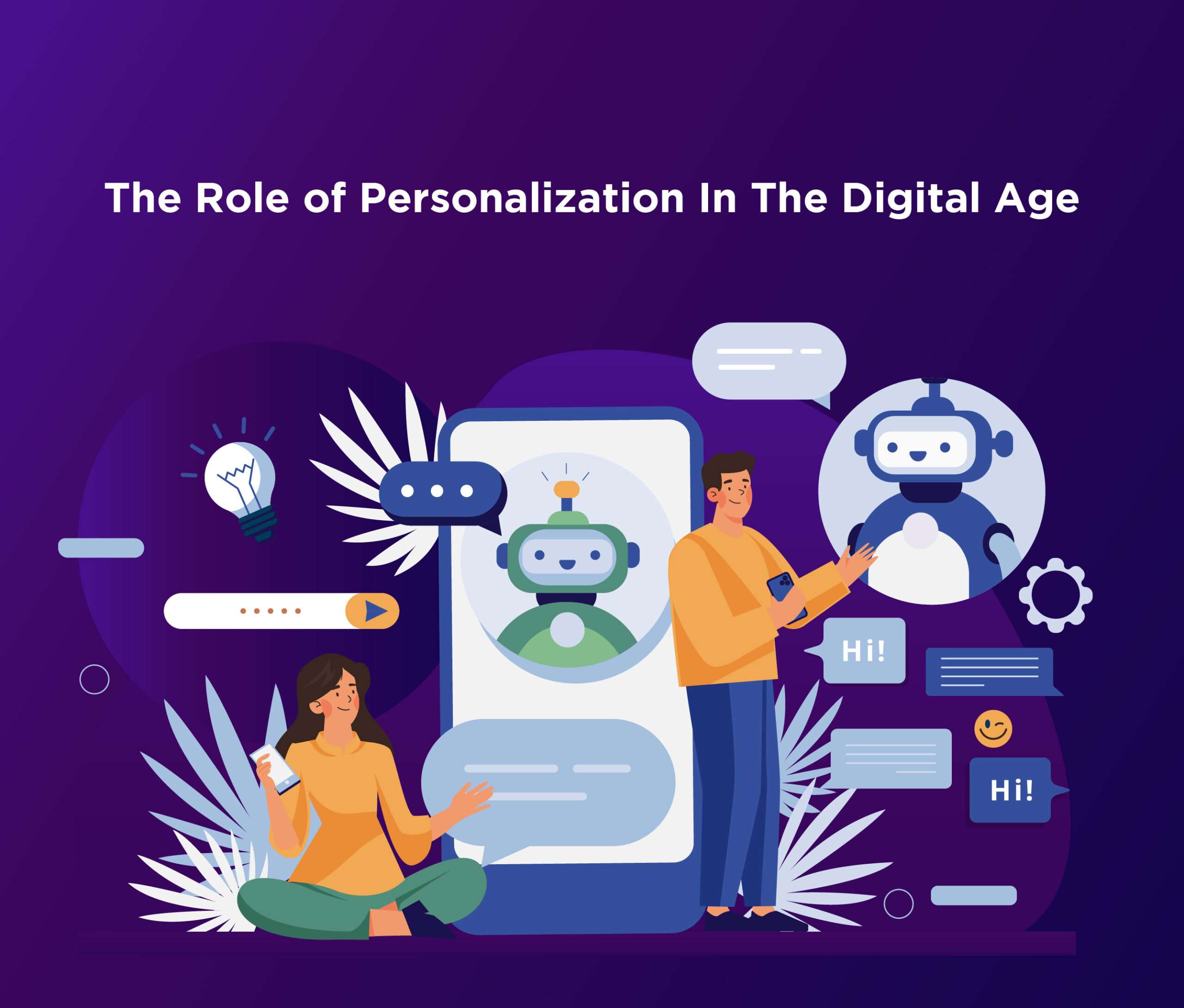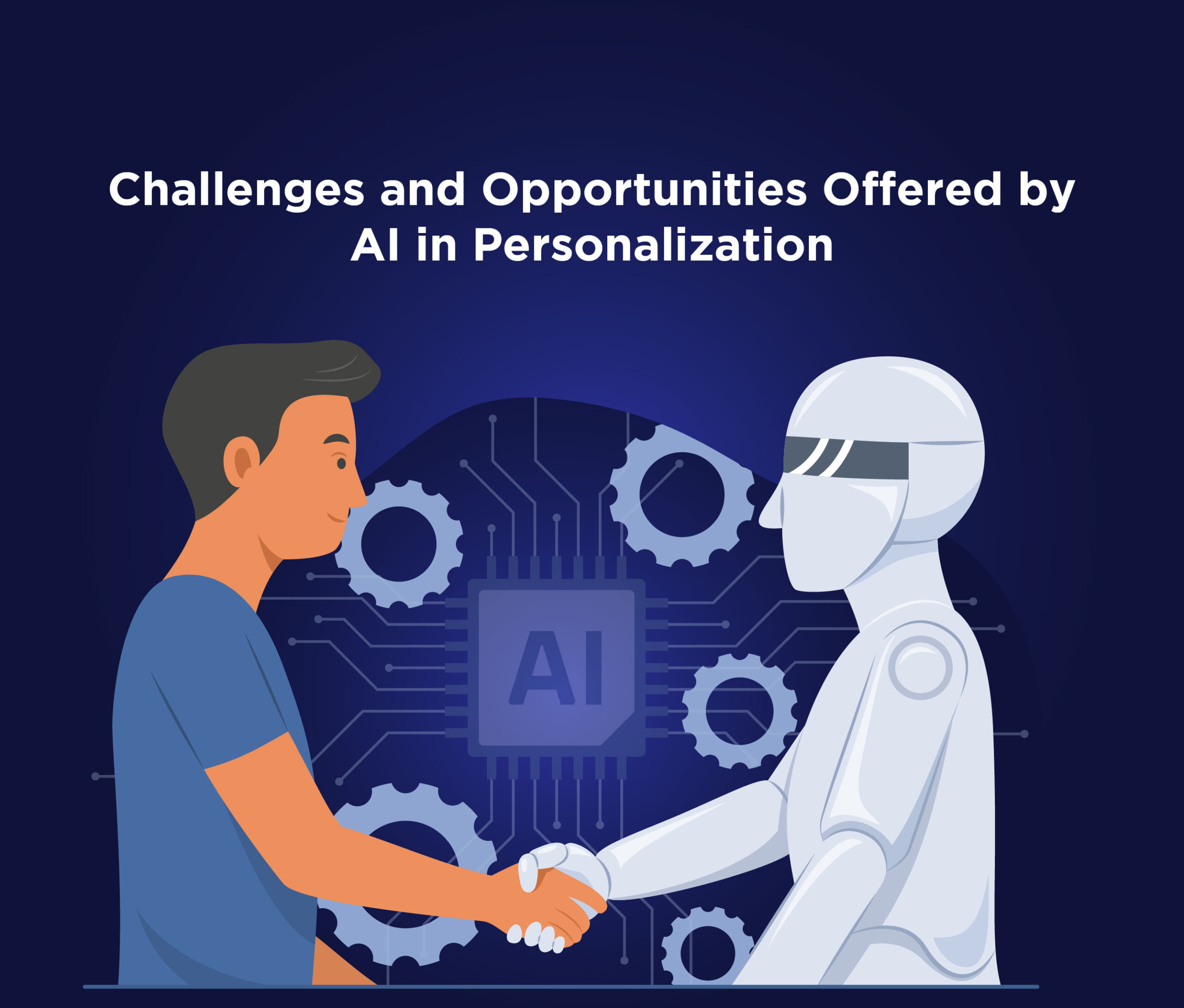AI is making waves in every corner of our lives, from finance to healthcare. It’s not just about futuristic robots; AI is already at work, boosting productivity and changing the way we do things with handy tools and automated tasks.
As AI becomes a part of our daily routine, it’s giving us the power to get what we want faster. This shift is raising the bar for digital experiences, with 76% of customers saying it’s easier than ever to switch brands if expectations aren’t met. According to PwC, AI could pump a whopping $15.7 trillion into the global economy by 2030.
That’s why brands need to hop on the AI in personalization train. Let’s talk more about it in detail.
What is AI in Personalization?
When we talk about AI in personalization, we’re talking about using machine learning and AI approaches to provide people with experiences that are tailored to their interests, behaviors, and traits. Understanding the unique requirements and preferences of each particular consumer entails gathering and evaluating a sizable amount of customer data, including browsing history, purchase trends, social media interactions, and demographic data.
Amazon’s recommendation engine is a well-known example of AI-powered personalization in action. The technology predicts things the user would be interested in and makes real-time recommendations for them by using a machine learning algorithm to examine search histories, purchase histories, and other behavioral data. Sales and consumer engagement for Amazon have increased significantly as a result of these tailored recommendations.
The Role of Personalization In The Digital Age
 The days of entering a store and having a few hundred goods to choose from are long gone. With an enormous array of alternatives, a new reality has been brought about by the digital era. Imagine browsing through numerous movies on streaming services or entering a store with five million products. With an average recorded online shopping cart abandonment rate of 69.99% in 2023, choice overload frequently results in no decision being taken. It is difficult to navigate this sea of options without AI-driven recommendation engines, and even a small percentage of abandoned carts might result in significant revenue for the company.
The days of entering a store and having a few hundred goods to choose from are long gone. With an enormous array of alternatives, a new reality has been brought about by the digital era. Imagine browsing through numerous movies on streaming services or entering a store with five million products. With an average recorded online shopping cart abandonment rate of 69.99% in 2023, choice overload frequently results in no decision being taken. It is difficult to navigate this sea of options without AI-driven recommendation engines, and even a small percentage of abandoned carts might result in significant revenue for the company.
Manufacturers face the challenge of choosing the right colors and features each season. AI personalization cuts down the time to identify preferences from months to days, enabling just-in-time manufacturing and competition on micro features. Personalization and recommendation algorithms are digital essentials, and AI takes them a step further, making it easy for users to find relevant content and products, making way for new industry competitions.
How is AI Used for Personalization?
AI in personalization can take many forms, from delivering recommendations and customized information to improving consumer interactions. Some important examples of AI-powered personalization are as follows:
- Customer analytics: Artificial intelligence algorithms examine copious amounts of client data, including demographics, browsing habits, past purchases, and more, in order to categorize and comprehend the preferences of their users.
- Personalized recommendations: Recommendation engines driven by AI examine consumer data to offer tailored content or product recommendations. For instance, AI algorithms are used by e-commerce giants like Amazon to examine user browsing patterns and past purchases to make relevant product recommendations.
- Personalized marketing messages: Businesses can use AI to tailor marketing messages to individual customers depending on customer data. AI systems are able to provide clients with customized emails, messages, and advertisements by evaluating customer data. This aids companies in providing each consumer with offers and content that are relevant to them.
- Personalized chatbots and virtual assistants: In the realm of AI in personalization, natural language processing (NLP) and machine learning are two ways that AI-powered chatbots and virtual assistants understand customer inquiries and provide relevant answers. Personalized responses from these AI assistants can be given depending on user preferences and previous interactions.
- Personalized content generation: Based on customer attributes, AI can produce customized content, such as emails or articles. This makes it possible for companies to provide customized content to each consumer without requiring a lot of human intervention.
Challenges and Opportunities Offered by AI in Personalization
AI in personalization has many advantages, but it also brings up issues with data protection and ethical use. A delicate balance between customization and respecting people’s right to privacy must be maintained when gathering and analyzing user data to provide personalized experiences. Regional governments, like the EU’s General Data Protection Regulation, are primarily responsible for enforcing privacy rights.
There is a complex web of industry, state, and federal self-regulation laws in the United States. Beyond these borders, regulation becomes much more limited. Businesses should prioritize data protection, transparency, and consent to ensure ethical AI practices in the name of competitive differentiation and their own brand values —Apple is the perfect example here. It’s important to remember that establishing strong privacy policies and following legal requirements is simply the start of a long process of gaining customers’ trust and reducing risks.
Key Takeaways
Customization is an effective strategy that companies can use to drive growth. However, AI has transformed personalization and the way companies interact with their clients. Businesses can now provide hyper-personalized experiences, boost customer satisfaction, and spur revenue development by leveraging the power of AI in personalization. AI applications, ranging from chatbots with AI capabilities to personalized messaging, content, advertisements, and suggestions, are expanding daily. However, before putting AI personalization into practice, companies need to have a defined objective and consider any ethical implications.


